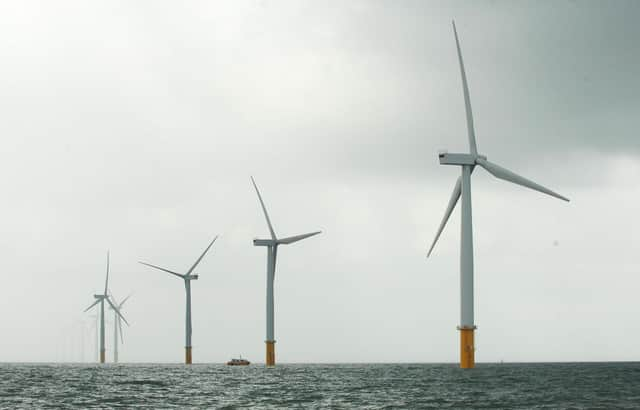Sustainable energy supplies should be a goal for your business - Ronan Lambe


With climate change increasingly on the corporate agenda, large businesses are increasingly considering how they can procure energy in a more sustainable way. Last year companies sourced a record 27.3GW of electricity through Corporate Power Purchase Agreements (CPPAs) despite the impact of the Covid-19 pandemic, according to research by Bloomberg New Energy Finance.
A CPPA allows a corporate entity to contract directly with a generator of electricity to use in its facilities and operations. CPPAs invariably contain requirements on the generator to provide evidence that the electricity is from a renewable or clean source, for example through the use of guarantees of origin. This in turn allows the business to demonstrate the sustainable purchasing choice it has made.
Advertisement
Hide AdAdvertisement
Hide AdConsumers are more influenced by the impact their spending habits have on the environment than ever before while institutional investors, encouraged by initiatives at industry and government levels, are increasingly using their influence to shape the strategic direction of the companies in which they invest.


CPPAs are often, but not always, based on payment of a fixed price for a fixed period of time. This provides developers with sufficient certainty of revenue over a long enough period to secure the viability of their project, and commit to constructing it.
For the business, demonstrating that its purchasing commitment has resulted in the construction of a new wind farm or solar park is a powerful message of its commitment to sustainability, with far reaching benefits from branding to investor relations.
Several models of CPPA are in use around the world, for both projects which are physically connected to the corporate consumer and those which are remote and supply electricity via the local transmission or distribution system. The CPPA may be a physical supply arrangement, or a financial product providing price certainty to both parties without a physical supply of electricity, and it can combine supply of other commodities, such as gas or steam.
The “powering down” of demand of many industrial consumers as a result of national Covid-19 lockdowns and other regulatory interventions resulted in a cumulative global fall in electricity demand in 2020, and we have seen evidence that some companies are more hesitant to enter into new CPPAs at the moment, given uncertainty around electricity demand and energy prices. For example, retail clients with large numbers of physical stores are trying to establish whether the shift to online retail will be permanent and, if so, the impact on their store presence and electricity use.
Although difficult to say with any certainty, it feels more likely than not that any downward trend on CPPA deployment caused by Covid-19 will be temporary and businesses will begin to gradually return to certain pre-pandemic normalities, meaning they can once again focus on sustainability targets and other longer-term concerns.
Ronan Lambe, Legal Director and renewable energy specialist at Pinsent Masons
Comments
Want to join the conversation? Please or to comment on this article.